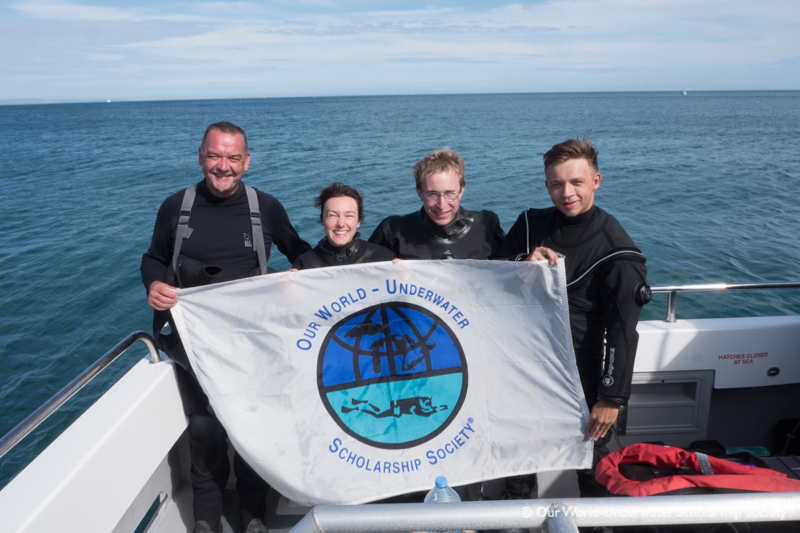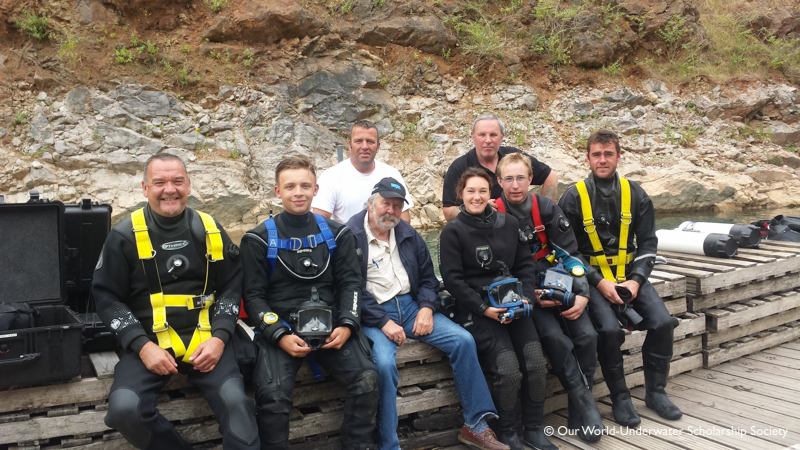———————————
PSA: Be sure to follow the new European Rolex Scholar Facebook page for more regular updates on my adventures and those of future EU scholars. 😀
———————————
“Diver One to Surface…Diver One to Surface” I muttered as I fumbled for the comms button on the outside of my mask. A few silent seconds went by whilst I hovered in the murk, before a tinny but familiar voice sounded out from somewhere around my head. “Go ahead Diver One” Richard politely requested. I took another breath before making my announcement. “I have reached bottom…29.9999 metres….over.” Another few seconds of silence. “Surface to Diver One….any chance you could be more accurate please? Over.”
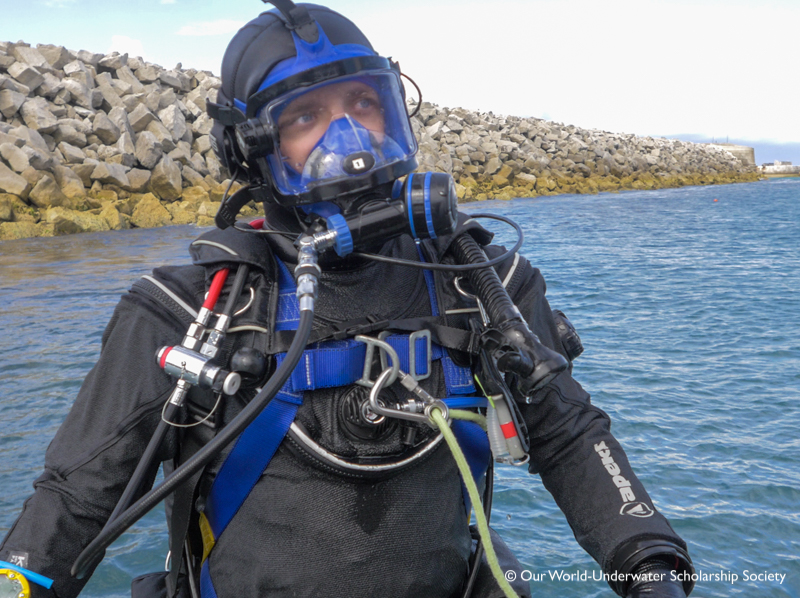
My latest scholarship adventure saw me return to the familiar and slightly less tropical shores of the British Isles. I was due to jump on a 10-day HSE Scuba course, conducted in and around Cardiff and Bristol by Neil Brock and the gang at Bristol Channel Diving Services. The idea of spending 10 days in a classroom and diving in the murky quarries of south-west England may not sound overly inviting to some people, especially given my previous month of tropical diving in the Red Sea. Not me though. I was equally pumped and anxious to get going with what was set to be an intensive few weeks.
“Wait, hold up Danny. What on earth is HSE Scuba? Also, why is this such a big deal to you?” I hear you ask. Well dear reader, let me explain. In short, completing the Health & Safety Executive (HSE) Scuba course is a legal requirement for anyone that wants a job within UK waters, or abroad with a UK-based company, where scuba diving is a requirement to complete a particular job. So this encompasses things like working on offshore rigs, underwater construction work and archaeological sites. Whilst I’m not so interested in any of those fields, the qualification also encompasses underwater work in the science and media industries, such as being an assistant or safety diver for an underwater camera operator on a film shoot. Given that I’m a firm believer in the power of photo and film in conservation and the process of reconnecting people with their marine environments, this course was right up my street! In fact, completing the HSE Scuba has been high on my list of ‘must-do things during my scholarship year’, and I have been quietly working towards all the pre-requisites even since I got back from New York. Whilst there are several establishments in the UK that are certified to run HSE Scuba courses, each tends to tailor their course towards one of the various fields covered under the qualification, and Neil’s course is one of only a few that focuses around the world of media diving. What I was particularly excited about was that Neil’s course involves and draws upon the expertise of the legendary Richard Bull, who has a vast history of experience in the underwater media world. He has worked on a gazillion programmes, including BBC Blue Planet and Pacific Abyss to name a few. Suffice to say, I couldn’t wait to start!
As with any course, the first day or so was dominated by important paperwork and necessary theory –but by day two, we were suiting up and getting ready to dive into all the new practical stuff. Firstly, the way scuba diving ‘at work’ is conducted is very different from your typical recreational dive. It’s far more systematic and regimented. Divers have their gear prepared and put onto them by people called ‘tenders’ (an unfamiliar experience, but one I could certainly get used to!). Meanwhile, the divers themselves must follow a specific dive plan not of their own making. Like a pawn, you are told when and what to do throughout the dive by the Dive Supervisor – essentially an omnipresent overlord that controls the whole operation in order to make sure the job gets done.

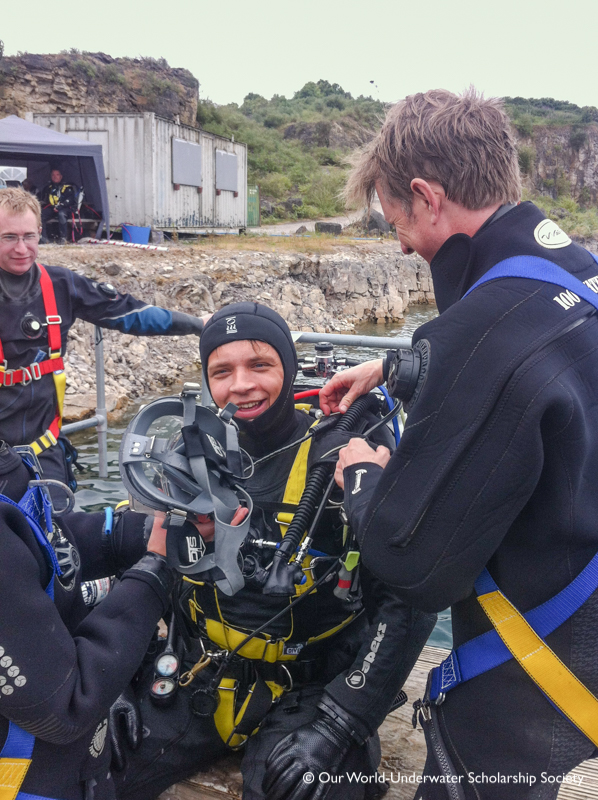
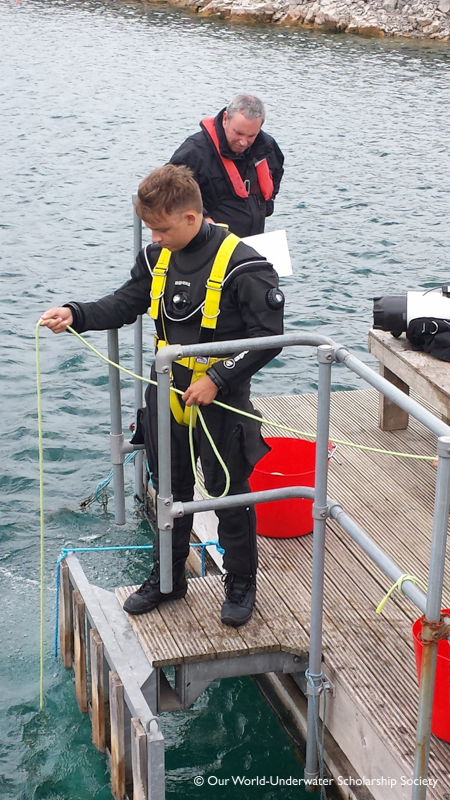
‘Omnipresent’ couldn’t be a more fitting description of the supervisor, as divers are all required to wear full face masks with voice communications to the surface. Despite being a little apprehensive before my first dive, it wasn’t long before I fell in love with using the Guardian Full Face mask! Aside from being extremely practical and part of a safety requirement, being able to have a conversation with your team at the surface, and your fellow divers, is just so fantastically cool! A definite highlight of the course. Plus, avoiding the sharp happy-slap you get to the face when jumping into cold water was also a massive bonus.
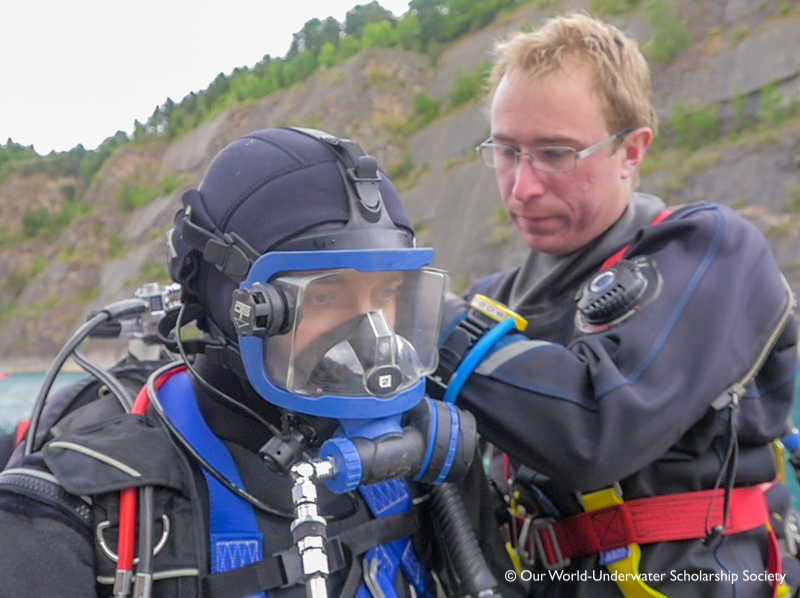
I’d like to thank Neil, Maggie, Richard, Adrian and the team from Bristol Channel Diving Services for helping me achieve a major objective of my scholarship year. Working within the underwater media world is certainly something I’m becoming increasingly interested in as a way of me helping to reconnect others with our oceans. We got up to a lot of cool things during the 10 days. Whilst it was definitely hard work, Neil and the team ran an awesome, enjoyable and educational course. If working as a diver in the media world is a career you’re considering pursuing, then I highly recommend you check them out online!
